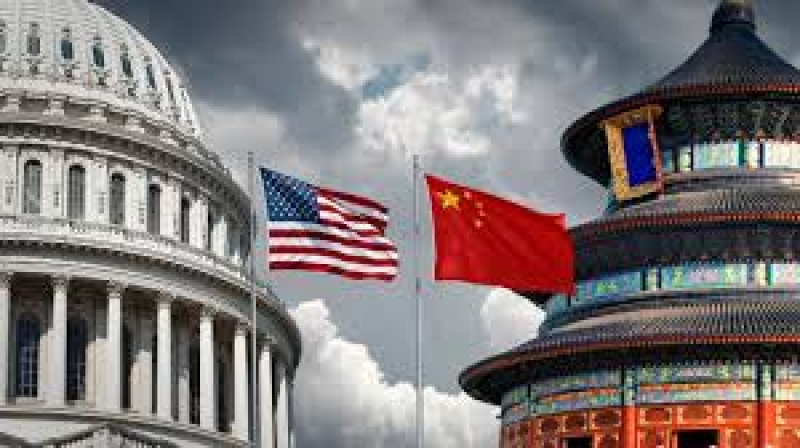- NCP Leaders Sign July National Charter in Dhaka |
- Tarique Rahman Vacates Bogura-6 Seat After Dual Win |
- Newly Elected MPs, Cabinet Members to Take Oath Tomorrow |
- India beats Pakistan by 61 runs as World Cup scenario heats up |
- Jatiya Party routed in its fortress, Rangpur |
China Sanctions 7 Companies Over US Military Aid to Taiwan

In a response to recent US military assistance to Taiwan, China has announced sanctions against seven companies, escalating tensions between the two nations. The sanctions, announced on Friday, are linked to the US's ongoing military sales and aid packages to the self-governing island that Beijing claims as part of its territory.
The move also follows the US government's approval of its annual defense spending bill, which, according to a statement from China's Foreign Ministry, contains multiple provisions critical of China. The sanctions reflect China's longstanding objection to US military support for Taiwan and are typically levied against companies involved in such transactions.
The companies facing sanctions include Insitu Inc., Hudson Technologies Co., Saronic Technologies Inc., Raytheon Canada, Raytheon Australia, Aerkomm Inc., and Oceaneering International Inc. Additionally, senior executives of these companies have been targeted, though their names have not been disclosed. As per the sanctions, any assets held by the companies or executives within China will be frozen, and Chinese entities and individuals are prohibited from engaging with them.
These sanctions are largely symbolic, as US defense firms do not sell military equipment to China. However, the US remains the primary supplier of weapons to Taiwan, which relies on these supplies for its defense against Chinese pressure.
The US's recent defense actions include President Joe Biden's authorization of up to $571 million in defense material, services, and military training for Taiwan. Furthermore, the US Department of Defense has approved a $295 million arms sale to Taiwan. The US defense bill, which boosts military spending to $895 billion, also allocates funds for potential military aid to Taiwan, reinforcing Washington's commitment to countering China's influence in the region.
Zhang Xiaogang, a spokesperson for China's Ministry of Defense, condemned the US's actions, claiming that Washington is inflating the "so-called" threat posed by China to justify its growing military budget. “US military spending has surpassed all other nations, continuing to increase each year," Zhang stated, accusing the US of pursuing a “belligerent” strategy driven by a desire for global hegemony.
China's Foreign Ministry issued a statement denouncing the US moves as violations of bilateral agreements on Taiwan, interference in China's internal affairs, and a threat to China's sovereignty and territorial integrity.
Tensions over Taiwan have escalated recently, with Taiwan's government reporting that China has conducted naval exercises near the island, simulating a blockade. Taiwan has condemned the maneuvers, saying they jeopardize regional stability and disrupt global shipping routes. China has not commented on the reports regarding its military activities.
This latest round of sanctions underscores the ongoing geopolitical rivalry between the US and China, particularly over Taiwan, which remains a flashpoint in US-China relations.

